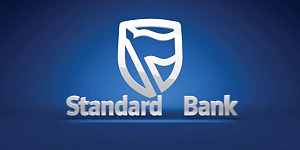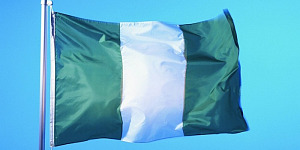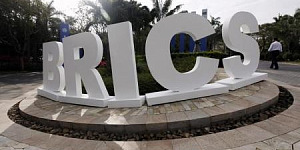Nigeria's central bank kept its monetary policy rate at 13.50 percent as 9 of its 11 monetary policy members decided this would allow time to better understand the momentum of domestic economic growth amid the declining trend in global output and persistent uncertainties.
The Central Bank of Nigeria (CBN), which in March cut its rate for the first time in 3-1/2 year, added maintaining the rate would also allow time to evaluate the bank's impact of its intervention policies to support lending to priority sectors.
Although an uptick in inflation to 11.37 percent in April from 11.25 percent in March should be monitored and could have resulted in monetary tightening, CBN's monetary policy committee said a tightening would limit the ability of deposit money banks (DMBs) to boost credit and an increase in the cost of credit would further diminish investment flow and have a negative effect on output given the fragile state of the economy.
Although two MPC's members voted to lower the policy rate by another 25 basis to "aggressively stimulate growth," a majority argued there was a need to restrain from further easing to avoid exacerbating inflationary pressures, which would likely put pressure on the naira's exchange rate.
In March CBN cut its rate by 50 basis points, the first change in rates since a 200 point hike in July 2016 and the first rate cut since November 2015, due to a steady decline in inflation, a stable naira, a robust level of reserves and a positive outlook for growth this year.
Nigeria, which relies on oil for about 80 percent of its exports, was hit hard by the fall in crude oil prices in 2014 which led to a chronic shortage of foreign exchange and capital flight.
Instead of letting its naira depreciate, the central bank propped up the exchange rate via capital controls and invention before finally scrapping a peg to the U.S. dollar in June 2016. CBN then chose a system of multiple exchange rates rather than a float, with the most recent change in August 2017 when the central bank unified its different exchange rates.
Since then the naira has been more stable and was trading at 360 to the U.S. dollar today, up 1.0 percent since the start of this year.
Nigeria's economy slowed in the first quarter of this year to an annual rate of 2.01 percent from 2.38 percent in the fourth quarter of last year but was up from 1.89 percent in first quarter 2018.
CBN said actual output remains well below the economy's long-run potential, calling on banks to "urgently" put in place policies that would promote lending to consumers and for mortgages, which "will greatly and positively impact on the flow of credit and ultimately result in output growth."
The bank's MPC took note of the government's reappointment and prompt confirmation of Godwin Emefiele for a second 5-year term as governor, saying this would help build policy credibility and deliver stability to domestic financial markets.








































